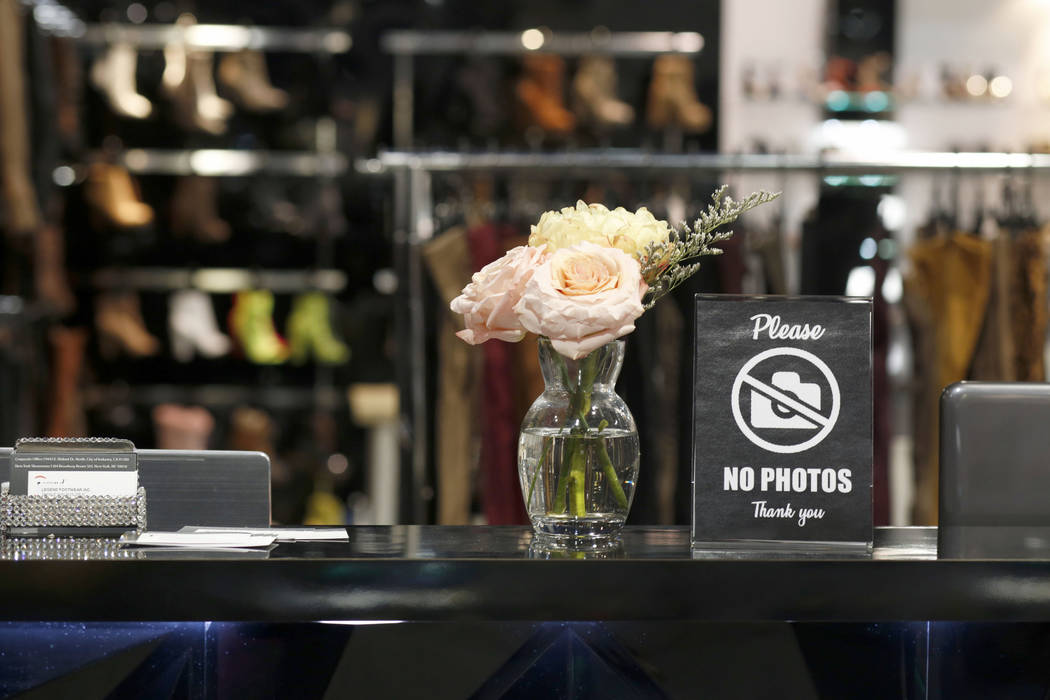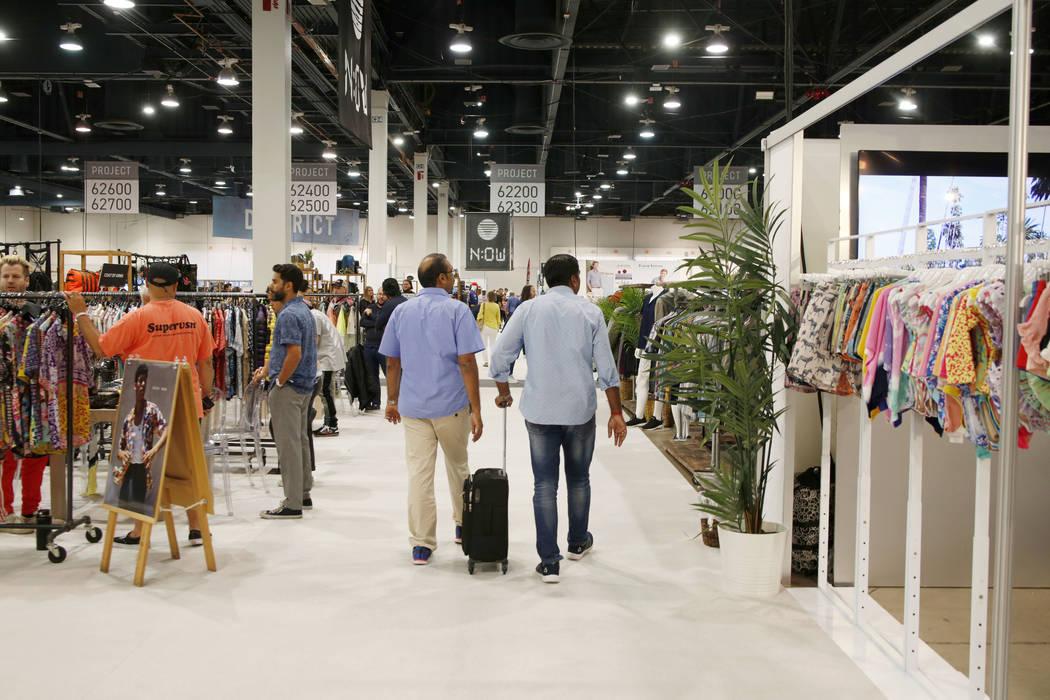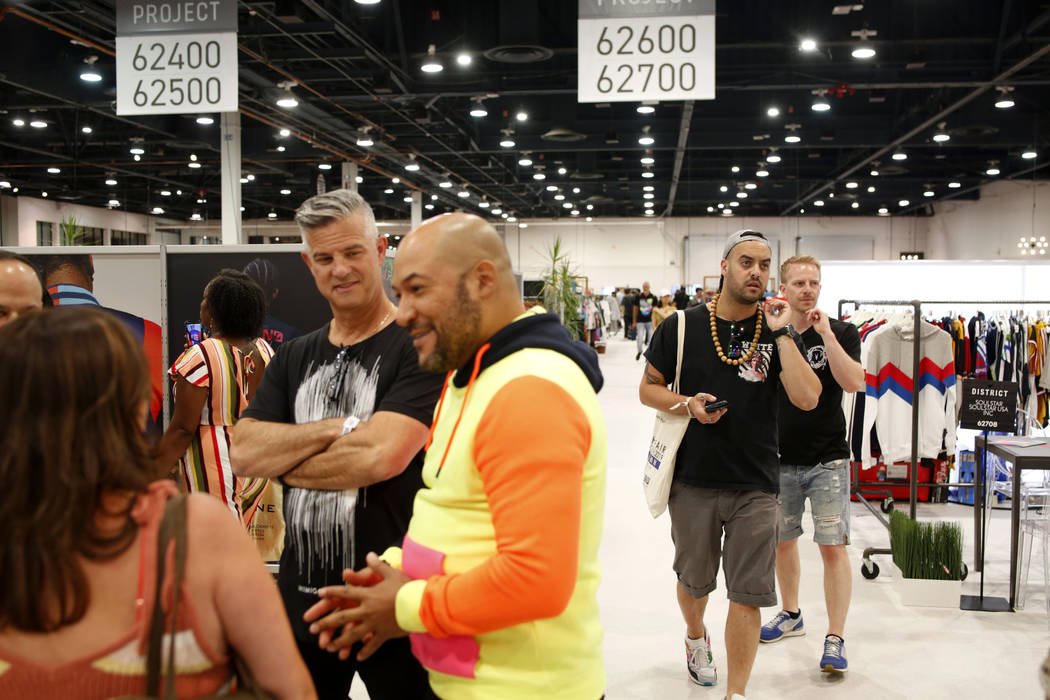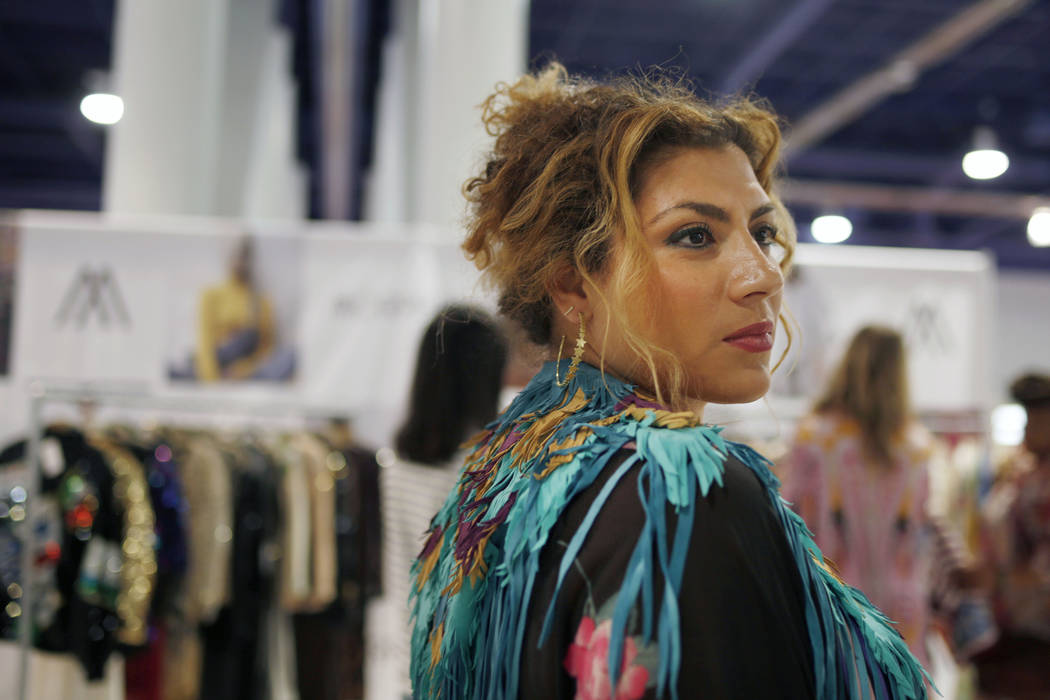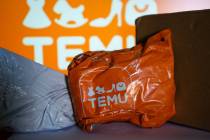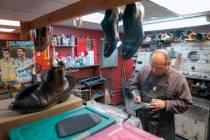Hunting knockoffs like playing ‘whack-a-mole,’ MAGIC attendees say
Darci Schurig spent nearly a year designing her first swimsuit collection. But soon after its launch, knockoff versions of her creations began popping up online.
That was two years ago, but the founder of Las Vegas-based retailer Pink Desert said it still happens. The issue of counterfeiting in retail was raised by other small-business owners during this year’s fashion trade show MAGIC, held Monday through Wednesday at the Las Vegas Convention Center.
Several retailers like Pink Desert joined in a seminar Monday about the prevalence of copycats for large and small businesses.
“I know by talking to a few other designers I’m not the only one having this problem,” Schurig said. “It’s such a hard beast to tackle.”
Whack-a-mole
When Pink Desert launches a new collection, Schurig and her staff will find those same items being sold on another retailer’s website with their product images.
Pink Desert Marketing Director and Executive Assistant Jena Huse said she has spreadsheets of at least 150 companies who have sold knockoff versions of their merchandise.
“They’ll steal our photos, get rid of our (brand) name, then target our customers with our photos saying they’re selling our products,” Huse said. “Our Instagram followers will message us saying, ‘Hey, we got this (ad) from a company is it yours?’ In two weeks, someone has completely knocked it off.”
The pirated photos are used to sell the cheaper knockoff version of Pink Desert’s clothing.
Stefania Geraci, former general counsel at Italian eyewear giant Luxottica Group, said it’s like “whack-a-mole.”
“It’s a campaign and it’s work … but you have to go after all those players,” Geraci said during the seminar. “You send them all cease-and-desist letters and tell them they’re not allowed to sell your product. You have to take the initiative. It’s not a problem that’s going to go away.”
Schurig said her products often are copied by manufacturers, who either would sell the merchandise online using her product images or offer it wholesale to retailers.
“I have purchased some of the knockoffs, and the quality is day and night — the fabric, the feel, the fit, the print’s color,” Schurig said. “It’s similar but different, and they don’t have our exact art file so they’re trying to replicate what they’ve seen.”
Schurig founded Pink Desert in 2010 as an online shop selling women’s clothing, swimsuits, footwear, accessories and children’s swimsuits. This month she will be opening her first brick-and-mortar shop in Centennial Hills area of the northwest valley. Prices range from about $10 for a pearl hairpin to $75 for a one-piece swimsuit.
What to do
Attorney Michael Krashin of Banner Witcoff, who also was on the MAGIC panel, said the best option is registering a trademark.
“Without a federal trademark registration, you’re easily copied,” he said. “There’s no magic law that helps the fashion industry, (but) trademark is one, copyright is another … then we have patents.”
Geraci said companies also can hire third-party service providers who can offer monitoring services or partner with law firms. She added businesses also should promote their network of authorized retailers to customers.
On the showroom floor, many vendors have signs telling attendees not to take photos of product for fear of having their goods counterfeited.
New York-based online vintage store Morphew doesn’t allow MAGIC attendees to take photos of its products on display. The retailer sells several luxury vintage pieces, including a 1990s Roberto Cavalli satin gown and a 1970s Gucci silk blouse and its own namesake collection — with items often costing upward of $14,000.
“They’ll come over, especially the factories that are here, and take pictures of stuff, and we know that they’ll go and counterfeit it,” said Melissa Motola, Morphew’s special projects manager.
Motola said that going after those who copy the company’s custom designs is difficult.
The company recently created a gold chain-mail mini dress for Rihanna, who wore it in March for her Fenty Beauty ad campaign. The handmade body-hugging dress was quickly copied, Motola said.
“It’s going to happen,” she said. “How can you avoid it?”
Contact Subrina Hudson at shudson@reviewjournal.com or 702-383-0340. Follow @SubrinaH on Twitter.




